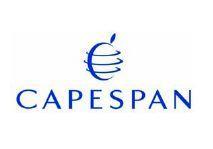
Difficult fruit trading conditions in certain key markets, an erratic supply pattern because of unseasonal weather in source countries and the strengthening rand have caused a dramatic drop in the Capespan Group's results for the first half of 2010.
Capespan said that its adjusted profit before taxation amounted to R2.6m (€280,000), a decline of R75.2m (€8.1m) when compared to the previous year’s R77.8m. The Group's revenues decreased by 13.3 per cent from R1.33bn (€143.5m) to R1.16bn (€125m).
However, the company, in an effort to point out the effect of exchange rates, said that if a constant currency rate based on 2009 average exchange rates is used, revenue declined by 2.1 per cent.
Capespan noted that its revenues from shipping activities declined by R120m (€12.9m), because the Group has no vessels on long-term charter.
Revenues showed good growth in North America, as well as from the Group's farming operations, but this was offset by a reduction in Japan.
There has been a significant reduction in the operating profits of all divisions, said acting managing director Louis Kriel.
'The decline in the fruit division is because of reduced pricing in certain key markets, margin pressure and an appreciating currency,' he said. 'The decline in the logistics division is because shipping activities in the prior year generated profits in the first half of the year, and this wasn't repeated following the decision to exit the long-term charter market.'
Kriel said that global climatic conditions have not returned to normality and the rand remains strong.
'Therefore, the remaining six months will be challenging, but we expect the Group to generate a reasonable profit taking the negative factors into account,' he explained. 'We'll continue focusing on growing our revenue and footprint and in this respect we're pursuing certain acquisitions.
'Subsequent to the end of the half-year under review, the Capespan Group acquired the remaining 50 per cent stake in Metspan, the Hong Kong-based fruit procurement and marketing company. We now own 100 per cent of Metspan. This is part of the longer term strategy to grow our business in the Far East markets.'



